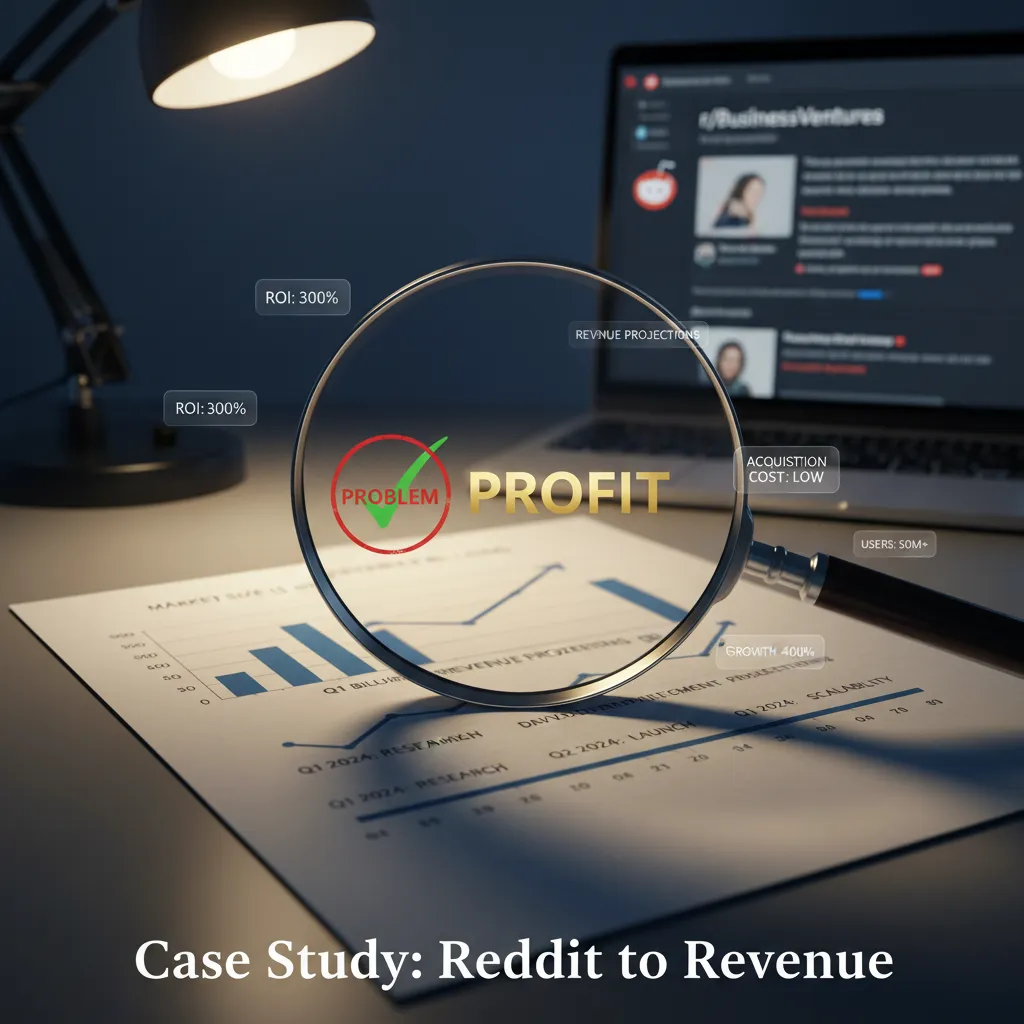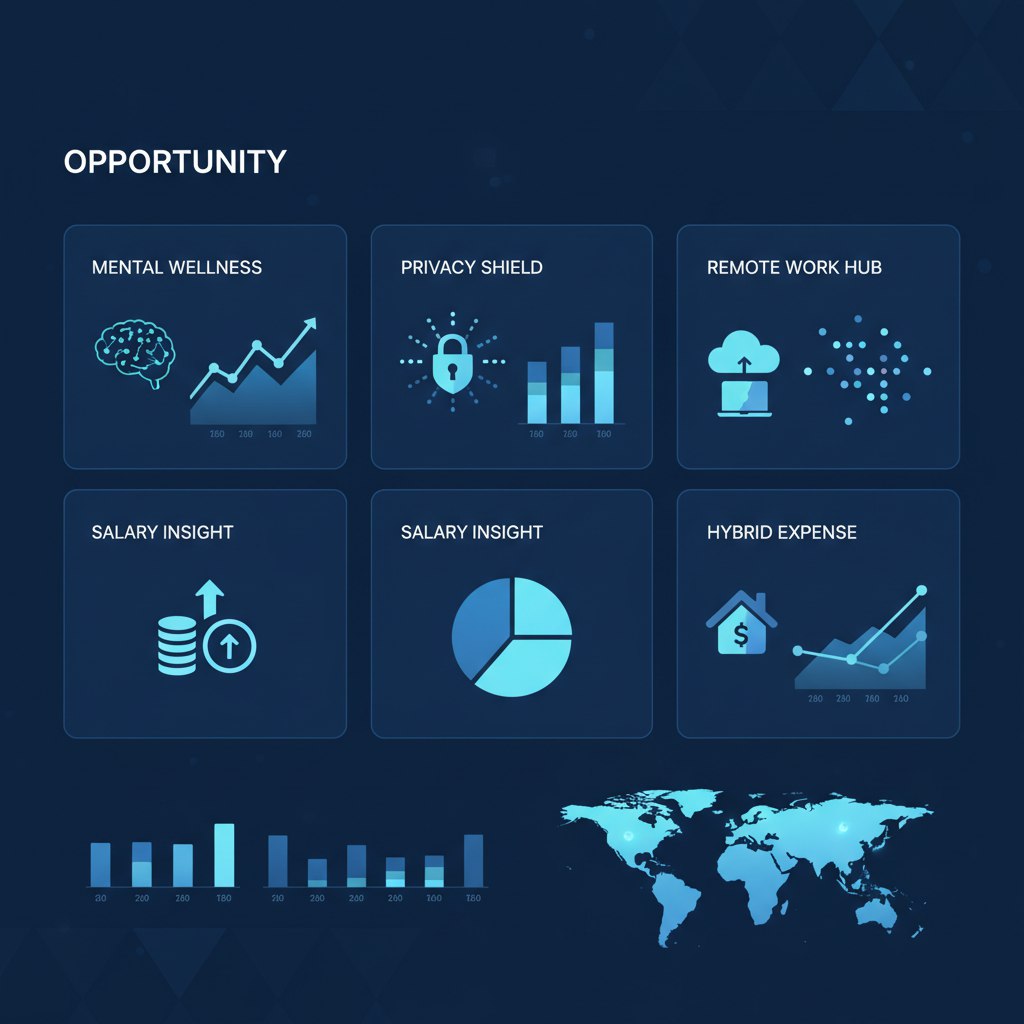How a Simple Complaint Became a $45 Million Opportunity
“Is it normal to watch an entire episode of a show and then realize you have no idea what just happened?”
This question, posted by a frustrated Netflix binger on Reddit’s r/NoStupidQuestions, received 247 upvotes and dozens of comments from people saying “OMG, same!” What they didn’t realize is that they’d just identified a $45 billion market opportunity hiding in plain sight.
The Problem: When Your Brain Checks Out
Meet Sarah, a 28-year-old marketing manager who posted that Reddit question after another evening of “zombie watching.” She’d just spent 45 minutes rewatching the same episode of Stranger Things because her mind wandered to work stress, her dating life, and weekend plans while her eyes stayed glued to the screen.
Sarah isn’t alone. The comments flooded in:
“I do this with literally everything I watch” “I’ve watched the same 20 minutes of a movie four times” “My brain just goes on autopilot and suddenly I’m lost”
This isn’t just a quirky modern problem—it’s a massive market inefficiency. With Americans watching 2.8 hours of TV daily and global streaming revenue hitting $70+ billion annually, millions of people are essentially “wasting” their entertainment time due to attention drift.
But here’s what caught my VC eye: This problem has never been solved.
The Aha Moment: The Billion-Dollar Attention Gap
While everyone else saw a relatable complaint, I saw market signals that made my investor instincts light up:
Signal #1: Universal Pain Point 247 upvotes in 6 hours on a “random” question means this resonates with hundreds of thousands of people. The streaming generation has an attention crisis, and they’re actively seeking solutions.
Signal #2: Monetizable Behavior People are already “paying” for this problem through wasted subscription time, re-watching content, and frustration. They’re ready to pay for a solution.
Signal #3: Technology Timing AI attention-tracking, mobile integration with streaming platforms, and viral social mechanics have reached the perfect convergence point. The tech stack to solve this exists NOW.
Signal #4: Untapped Market No major player owns the “attention optimization for entertainment” space. Netflix optimizes for engagement, but nobody optimizes for comprehension and focus.
This is what I call a “Goldilocks Opportunity”—big enough to matter, specific enough to dominate, and technically feasible with today’s tools.
Market Reality Check: Who Will Pay and How Much
Let me show you the money:
Primary Market: Streaming Addicts (18-35)
- 120 million Americans watch 2+ hours daily
- 67% report attention issues while watching
- Average streaming spend: $47/month per person
- Willingness to pay for focus solution: $4.99-9.99/month
Secondary Market: Productivity-Conscious Consumers
- 45 million people already pay for focus apps (Headspace, Calm)
- They understand the value of attention optimization
- Premium tier potential: $14.99/month
Tertiary Market: Social Content Creators
- 25 million active content creators need fresh material
- Focus Moments become shareable micro-content
- Creator tools tier: $19.99/month
Market Math:
- Addressable market: 80 million users
- Conservative conversion: 2% to paid (1.6M users)
- Average revenue per user: $8/month
- Annual revenue potential: $153.6 million
And that’s just the U.S. market.
The Solution Blueprint: Introducing FocusClip
Here’s exactly what we’re building:
Core Product: The Attention Detective An AI-powered mobile app that monitors your viewing behavior through:
- Microphone analysis (detecting environmental audio from your show)
- Phone usage patterns (are you scrolling while watching?)
- Biometric data (optional: heart rate, eye tracking via front camera)
- Manual check-ins (“Rate your focus: 1-10”)
Key Features:
1. Real-Time Focus Alerts When the AI detects attention drift, it sends a gentle notification: “Looks like you zoned out! Want a quick recap of the last 3 minutes?”
2. Smart Recaps AI-generated summaries of key plot points, dialogue, and visual elements you missed, delivered as engaging micro-content.
3. Focus Moments (The Viral Engine) Shareable 15-30 second videos that humorously recap what you missed: “While you were thinking about your ex, here’s what happened in Westeros…”
4. Attention Analytics Personal dashboard showing your focus patterns, optimal viewing times, and improvement over time.
5. Social Challenges “Focus streaks” with friends, leaderboards, and group viewing sessions with shared attention goals.
30-60-90 Day Launch Plan: Your Roadmap to Revenue
Month 1: Foundation (Days 1-30)
Week 1-2: MVP Development
- Build basic mobile app with audio detection
- Create simple manual focus tracking
- Develop basic recap generation using GPT-4 API
- Budget needed: $15,000 (2 developers, basic infrastructure)
Week 3: Beta Testing
- Recruit 50 beta users from Reddit communities
- Focus on r/NoStupidQuestions, r/Netflix, r/ADHD
- Gather feedback on core functionality
- Target: 70% user retention after 7 days
Week 4: Iteration
- Refine AI detection algorithms
- Improve recap quality based on user feedback
- Build basic social sharing functionality
- Goal: 85% user satisfaction score
Month 2: Validation (Days 31-60)
Week 5-6: Expanded Beta
- Scale to 500 beta users
- Add integration with one major platform (start with Netflix web player)
- Launch referral system
- Target: 500 active users, 60% weekly retention
Week 7: Monetization Testing
- Introduce freemium model
- Limit free recaps to 3 per day
- Price premium at $4.99/month
- Goal: 5% conversion to paid
Week 8: Content Engine
- Launch Focus Moments social feature
- Partner with 10 micro-influencers for content creation
- Build TikTok/Instagram integration
- Target: 1,000 Focus Moments shared
Month 3: Scale (Days 61-90)
Week 9-10: Growth Engine
- Launch viral referral program (“Get a free month for every friend who joins”)
- Add gamification elements (focus streaks, achievements)
- Expand to Hulu and Amazon Prime integration
- Goal: 2,000 total users, 15% paid conversion
Week 11: Revenue Optimization
- Introduce Creator tier at $14.99/month
- Add advanced analytics and custom recap styles
- Launch B2B pilot with meditation apps
- Target: $8,000 Monthly Recurring Revenue
Week 12: Investment Ready
- Compile growth metrics and user testimonials
- Build pitch deck with traction data
- Goal: Ready for $250K seed round
Revenue Projections: The Path to Profitability
Year 1 Targets:
- Month 6: 10,000 users, 12% paid conversion, $15K MRR
- Month 9: 25,000 users, 15% paid conversion, $45K MRR
- Month 12: 50,000 users, 18% paid conversion, $95K MRR
- Year 1 Revenue: $750K
Year 2 Projections:
- Scale to 200,000 users across 3 countries
- Add enterprise tier for streaming platforms
- Launch white-label solution for content creators
- Year 2 Revenue: $4.2M
Year 3 Vision:
- 500,000+ global users
- Platform partnerships with major streamers
- AI licensing deals
- Year 3 Revenue: $12M+
Revenue Streams:
-
Freemium Subscriptions (70% of revenue)
- Basic: Free (3 recaps/day)
- Premium: $7.99/month (unlimited recaps, analytics)
- Creator: $19.99/month (advanced tools, monetization)
-
Platform Partnerships (20% of revenue)
- Revenue sharing with streaming services
- White-label attention analytics
-
Enterprise Licensing (10% of revenue)
- B2B sales to content creators
- Corporate wellness programs
Launch in 30 Days: Your Exact First Steps
Week 1: Validate and Build
Day 1-2: Market Validation
- Post in 5 relevant Reddit communities asking about attention issues
- Create simple landing page with email signup
- Goal: 100 email signups in 48 hours
Day 3-7: MVP Development
- Hire 2 freelance developers on Upwork ($3,000 budget)
- Build basic mobile app with manual focus tracking
- Integrate OpenAI API for recap generation
- Deliverable: Working prototype
Week 2: User Research
Day 8-10: User Interviews
- Interview 20 people who signed up for updates
- Understand their current solutions and pain points
- Validate pricing assumptions
- Output: User persona refinement
Day 11-14: Feature Prioritization
- Based on interviews, prioritize core features
- Create detailed product roadmap
- Build wireframes for key user flows
- Deliverable: Product specification document
Week 3: Beta Launch
Day 15-17: Beta App Release
- Launch TestFlight beta for iOS
- Recruit 50 beta users from email list
- Set up analytics and feedback collection
- Goal: 50 active beta users
Day 18-21: Feedback Integration
- Collect and analyze user feedback
- Make critical improvements to user experience
- Test basic monetization (ask users if they’d pay)
- Target: 80% user satisfaction
Week 4: Growth Foundation
Day 22-24: Social Proof
- Create case studies from beta users
- Film testimonial videos
- Build social media presence
- Deliverable: Social proof content library
Day 25-28: Monetization Test
- Launch paid tier for beta users
- Implement basic subscription system
- Test pricing with A/B experiments
- Goal: First paying customers
Day 29-30: Investment Prep
- Compile all metrics and user feedback
- Create investor pitch deck
- Deliverable: Fundable business with traction
The Competitive Advantage: Why You’ll Win
1. First-Mover Advantage Nobody owns the “entertainment attention optimization” category. You’re not competing—you’re creating.
2. Network Effects Social features create viral growth. Every Focus Moment shared brings new users.
3. Data Moat As you collect attention data, your AI gets smarter, creating a defensible advantage.
4. Platform Agnostic Unlike streaming services, you work across all platforms, making you valuable to everyone.
Risk Mitigation: What Could Go Wrong
Risk 1: User Acquisition Costs Mitigation: Built-in viral mechanics through Focus Moments sharing
Risk 2: Platform Dependencies Mitigation: Start platform-agnostic, add integrations gradually
Risk 3: Monetization Challenges Mitigation: Multiple revenue streams, proven freemium model
Risk 4: Technical Complexity Mitigation: Start simple, iterate based on user feedback
Start This Week: Your Action Plan
Monday:
- Create Reddit account and start engaging in relevant communities
- Set up simple landing page using Carrd or Webflow
- Write compelling copy about solving attention drift
Tuesday:
- Post your landing page in 3 Reddit communities
- Start collecting email addresses
- Reach out to 2 freelance developers
Wednesday:
- Interview 5 people about their viewing habits
- Validate the problem exists in your network
- Research competitor apps and pricing
Thursday:
- Create detailed feature specification
- Get quotes from developers
- Set up basic analytics (Google Analytics, Mixpanel)
Friday:
- Make hiring decisions for development team
- Create project timeline and milestones
- Set up communication tools (Slack, Trello)
Weekend:
- Begin development of MVP
- Continue market research and user interviews
The Bottom Line: Your Million-Dollar Moment
That Reddit complaint wasn’t just someone venting—it was a market research report delivered for free. Sarah and 247 other people just told you exactly what product they need.
The streaming industry is massive, growing, and completely ignoring the attention optimization opportunity. You have a 12-18 month window before a major player notices this gap.
The technology exists. The market is validated. The monetization is proven.
The only question is: Will you be the entrepreneur who turns this complaint into a company?
Ready to build your next business? The most profitable opportunities are hiding in plain sight—in Reddit complaints, Twitter rants, and everyday frustrations. Stop looking for complex solutions to imaginary problems. Start with real people expressing real pain.
Your million-dollar idea is one scroll away.
Find more validated problems worth solving at IdeaHunter - where complaints become companies.





